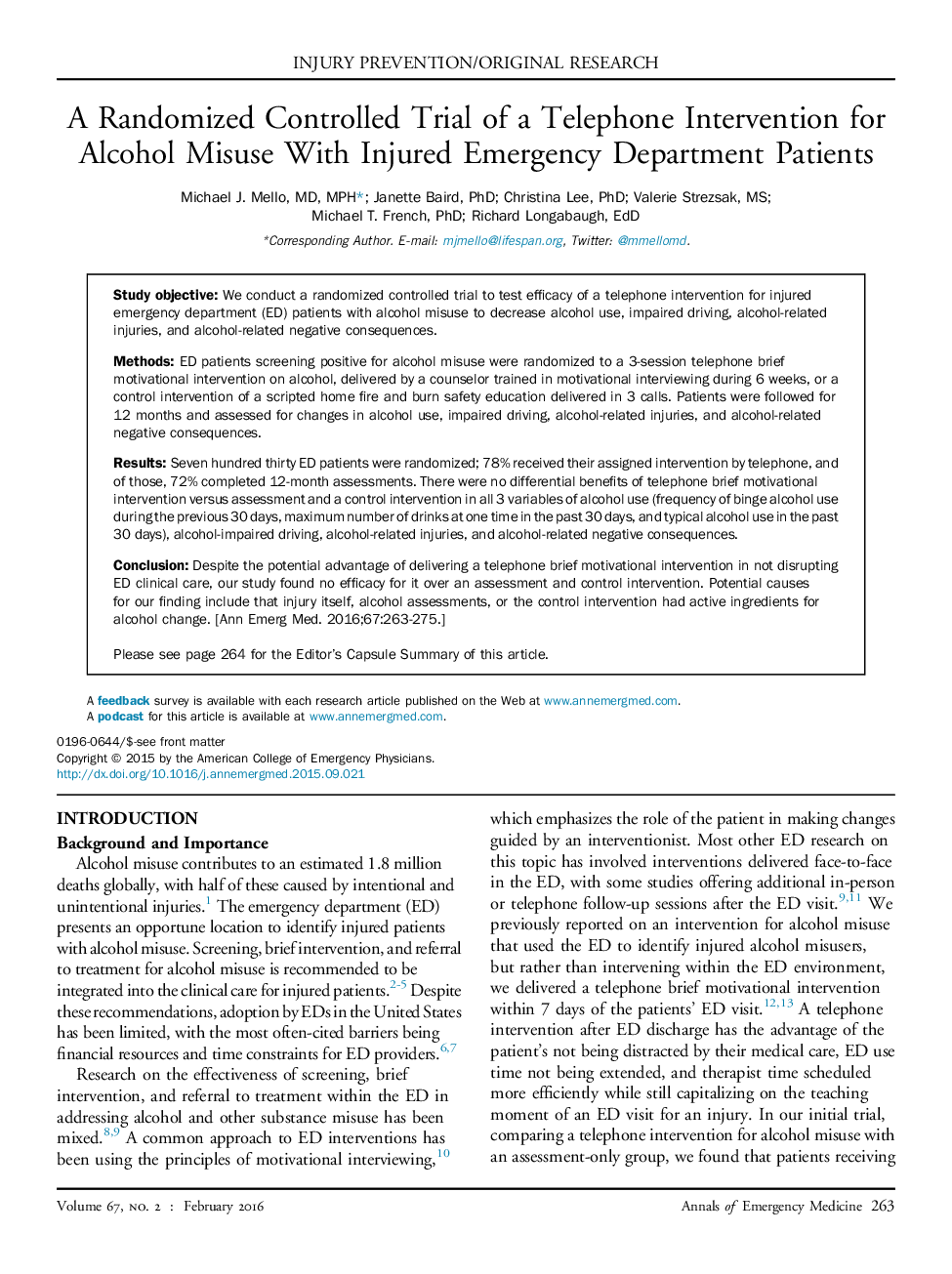| Article ID | Journal | Published Year | Pages | File Type |
|---|---|---|---|---|
| 3228879 | Annals of Emergency Medicine | 2016 | 13 Pages |
Study objectiveWe conduct a randomized controlled trial to test efficacy of a telephone intervention for injured emergency department (ED) patients with alcohol misuse to decrease alcohol use, impaired driving, alcohol-related injuries, and alcohol-related negative consequences.MethodsED patients screening positive for alcohol misuse were randomized to a 3-session telephone brief motivational intervention on alcohol, delivered by a counselor trained in motivational interviewing during 6 weeks, or a control intervention of a scripted home fire and burn safety education delivered in 3 calls. Patients were followed for 12 months and assessed for changes in alcohol use, impaired driving, alcohol-related injuries, and alcohol-related negative consequences.ResultsSeven hundred thirty ED patients were randomized; 78% received their assigned intervention by telephone, and of those, 72% completed 12-month assessments. There were no differential benefits of telephone brief motivational intervention versus assessment and a control intervention in all 3 variables of alcohol use (frequency of binge alcohol use during the previous 30 days, maximum number of drinks at one time in the past 30 days, and typical alcohol use in the past 30 days), alcohol-impaired driving, alcohol-related injuries, and alcohol-related negative consequences.ConclusionDespite the potential advantage of delivering a telephone brief motivational intervention in not disrupting ED clinical care, our study found no efficacy for it over an assessment and control intervention. Potential causes for our finding include that injury itself, alcohol assessments, or the control intervention had active ingredients for alcohol change.
